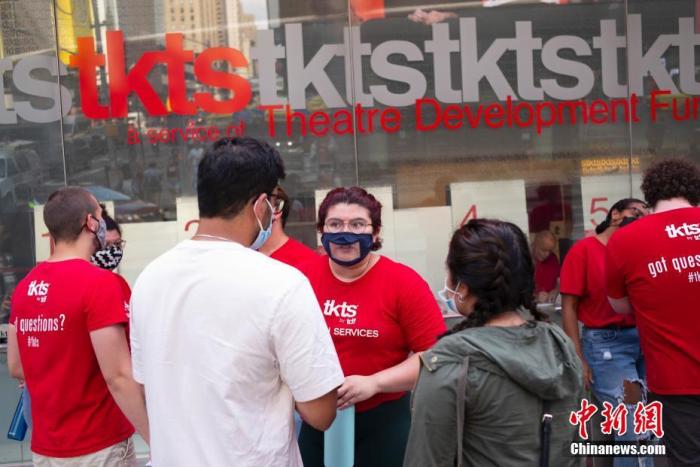China News Service, September 18th, according to the US Chinese website, on the 17th local time, an advisory committee of the U.S. Food and Drug Administration (FDA) rejected the plan to distribute Pfizer's new crown vaccine booster shots to the general public, but it is recommended to be 65 years old. Vaccination for high-risk groups of and above and those with underlying diseases.
Data map: The United States under the epidemic.
Photo by China News Agency reporter Liao Pan
According to reports, on the same day, the FDA Vaccines and Biologicals Advisory Committee reviewed the data submitted by Pfizer on its booster injections, and finally rejected the general public's plan for booster injections with a 16 to 2 vote.
Committee members expressed doubts about the safety of booster needles in young people and adolescents, and complained about the lack of data on the safety and long-term efficacy of boosters.
But in the second round of voting that followed, experts unanimously agreed that the elderly and vulnerable people should be given booster shots 6 months after they are fully vaccinated with Pfizer.
According to reports, Pfizer stated in the data submitted to the FDA that people's immunity will weaken in about 6 months after two doses of vaccine are fully vaccinated, and immunity can be restored by vaccinating the third dose at 6 to 8 months.
However, Klaus, deputy director of the Office of Vaccine Research and Review of the FDA, pointed out at a meeting on the 17th that the data used by Pfizer has not been reviewed by experts.
Cullila, an infectious disease expert at the National Center for Translational Science Advancement in the United States, also pointed out that research to support boosters relies to a large extent on the measurement of antibodies, without considering other important aspects of the immune response.
However, Cullera added, "This (enhancer) is absolutely necessary for high-risk groups."
In addition, the Centers for Disease Control and Prevention (CDC) also plans to hold a two-day meeting next week to discuss the strengthening of needles separately.
The Biden administration announced in August that it hopes to provide booster needles to the public as early as September 20. However, because the booster needles have not yet been approved by the FDA, the plan has been criticized by some scientists and health experts who believe that federal health officials cited the The data is not convincing enough, and it is too early to promote the strengthening of needles.

